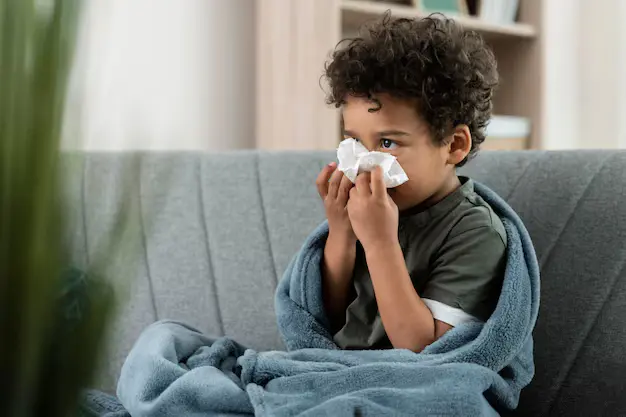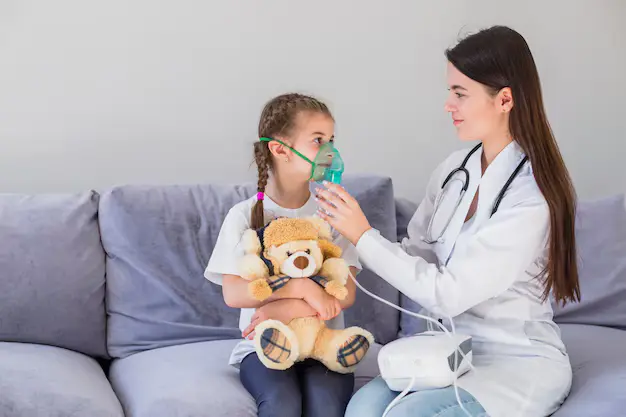
Allergy
The same allergens that give some people sneezing fits and watery eyes can cause an asthma attack in others. Allergic asthma is the most common type of asthma. About 90% of kids with childhood asthma have allergies, compared with about 50% of adults with asthma. The symptoms that go along with allergic asthma show up after you breathe things called allergens (or allergy triggers) like pollen, dust mites, or mold. If you have asthma (allergic or non-allergic), it usually gets worse after you exercise in cold air or after breathing smoke, dust, or fumes. Sometimes even a strong smell can set it off.
Because allergens are everywhere, it's important that people with allergic asthma know their triggers and learn how to prevent an attack.
Your immune system’s job is to protect you from bacteria and viruses. If you have allergies, though, part of your immune system works too hard. It may attack harmless substances - like cat dander or pollen - in your nose, lungs, eyes, and under your skin.
When your body meets an allergen, it makes chemicals called IgE antibodies. They cause the release of chemicals like histamine, which cause swelling and inflammation. This creates familiar symptoms like a runny nose, itchy eyes, and sneezing as your body tries to remove the allergen.

Asthma
Asthma is a condition in which your airways narrow and swell and produce extra mucus. This can make breathing difficult and trigger coughing, wheezing and shortness of breath.
For some people, asthma is a minor nuisance. For others, it can be a major problem that interferes with daily activities and may lead to a life-threatening asthma attack.
Asthma can't be cured, but its symptoms can be controlled. Because asthma often changes over time, it's important that you work with your doctor to track your signs and symptoms and adjust treatment as needed.
Symptoms
Asthma symptoms vary from person to person. You may have infrequent asthma attacks, have symptoms only at certain times — such as when exercising — or have symptoms all the time.
Asthma signs and symptoms include -
- Shortness of breath
- Chest tightness or pain
- Trouble sleeping caused by shortness of breath, coughing or wheezing
- A whistling or wheezing sound when exhaling (wheezing is a common sign of asthma in children)
- Coughing or wheezing attacks that are worsened by a respiratory virus, such as a cold or the flu
Signs that your asthma is probably worsening include -
- Shortness of breath
- Asthma signs and symptoms that are more frequent and bothersome
- Increasing difficulty breathing (measurable with a peak flow meter, a device used to check how well your lungs are working)
- The need to use a quick-relief inhaler more often